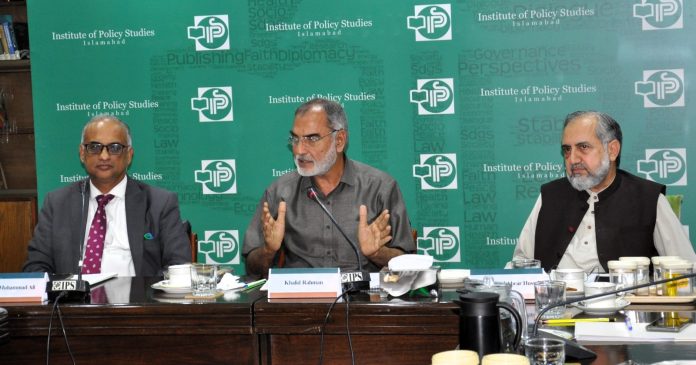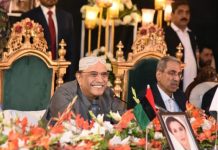DNA
Islamabad, June 27: The shifting dynamics of power and influence in India, due to the setback for BJP in the recent elections, reflect a symbolic change but it remains inconclusive and merely marks the beginning of a transformation process.
Although it may appear that the BJP’s popularity has declined due to the advances made by the INDIA alliance, but in substance the opposition’s approach towards most issues fundamentally mirrors that of the BJP. Historical events such as the 1965 and 1971 wars and the Babri Masjid demolition during Congress rule demonstrate this similarity. Additionally, the redistribution of votes is largely attributed to the Muslim-Dalit alliance rather than a genuine decline in the BJP’s influence.
While the centralization of power within the BJP is unlikely to decrease significantly even in a coalition government, increased legislative checks and balances on the BJP, along with an expansion of civil society space, are expected. This indicates that the current political landscape is in a “to be watched” phase, with both strengthening and weakening factors at play for the coalition, both internally and externally.
These views were expressed during a session titled “Understanding Indian Ambitions in Changing Domestic Dynamics” organized by the Institute of Policy Studies (IPS), Islamabad. The session was chaired by Khalid Rahman, chairman IPS, and moderated by Ambassador Syed Abrar Hussain, vice chairman IPS, while the keynote speech was delivered by Dr Syed Muhammad Ali, a policy analyst and strategist, Dr Khurram Abbas, director India Study Center, Institute of Strategic Studies Islamabad, Dr Asma Shakir Khawaja, executive director, Center for International Strategic Studies AJK, and Brig (r) Said Nazir, a defense analyst.
India’s strategic behavior is deeply influenced by identity politics, stemming from a sense of insecurity among its elites, noted Muhammad Ali. This insecurity is rooted in the perception that while non-Hindu rulers, Muslims and British, successfully governed a united South Asia, Hindu leaders could not. This identity politics has fostered a bipartisan ambition among all political stakeholders to establish India as a dominant Hindu superpower.
Muhammad Ali further observed that the ways and methods of this strategic aim could be affected by a vocal and consolidated opposition in the Indian parliament. Nonetheless, India is going to realize this strategic aim through its toolkit of information, diplomacy, economy, and military strength. These elements collectively form the backbone of India’s efforts to assert its dominance on the regional and global stage.
Dr Khurram highlighted the emerging checks and balances within the Modi government due to coalition politics as an important shift impacting BJP policy decisions. This might compel Modi to prioritize allies’ selective support. However, the opposition’s strong reservations about constitutional amendments and seat delimitation pose challenges for the BJP.
Regarding Modi’s policies toward Muslims, he observed that while his approach might appear different due to tactical retreats, the core policy objectives remain unchanged. The recent consolidation of Muslim and Dalit vote banks could push Modi to appease these minorities in future elections.
Dr Asma emphasized that India’s strategic behavior is unlikely to change significantly following the elections, as it is rooted in a strategic culture developed over a thousand years. She said India’s strategic culture is territorial and identity-based in nature. In this context, Modi’s options towards Pakistan could either be extending a peaceful hand to secure his legacy, conducting a false-flag operation to create public insecurity, or using strategic proxies to undermine Pakistan.
Endorsing this, Brig. Nazir highlighted that the BJP is still dominant in parliament, despite the opposition. In hindsight, to retain his status, Modi might have to work to rectify issues like socio-instability and economic unevenness.
Khalid Rahman noted that India’s current political environment is characterized by a complex and evolving landscape, signifying a symbolic shift in power dynamics. However, it is premature to reach definitive conclusions since India’s deeply ingrained strategic culture is unlikely to undergo significant changes. As such the centralization of power within the BJP is expected to continue, though with enhanced legislative oversight and expanded civil society space. He emphasized that this transformation period requires close monitoring due to the presence of both strengthening and weakening elements within the coalition. #
Farhan, Syed
Institute of Policy Studies (IPS)
Islamabad.
051-8438391-3
www.ips.org.pk

















